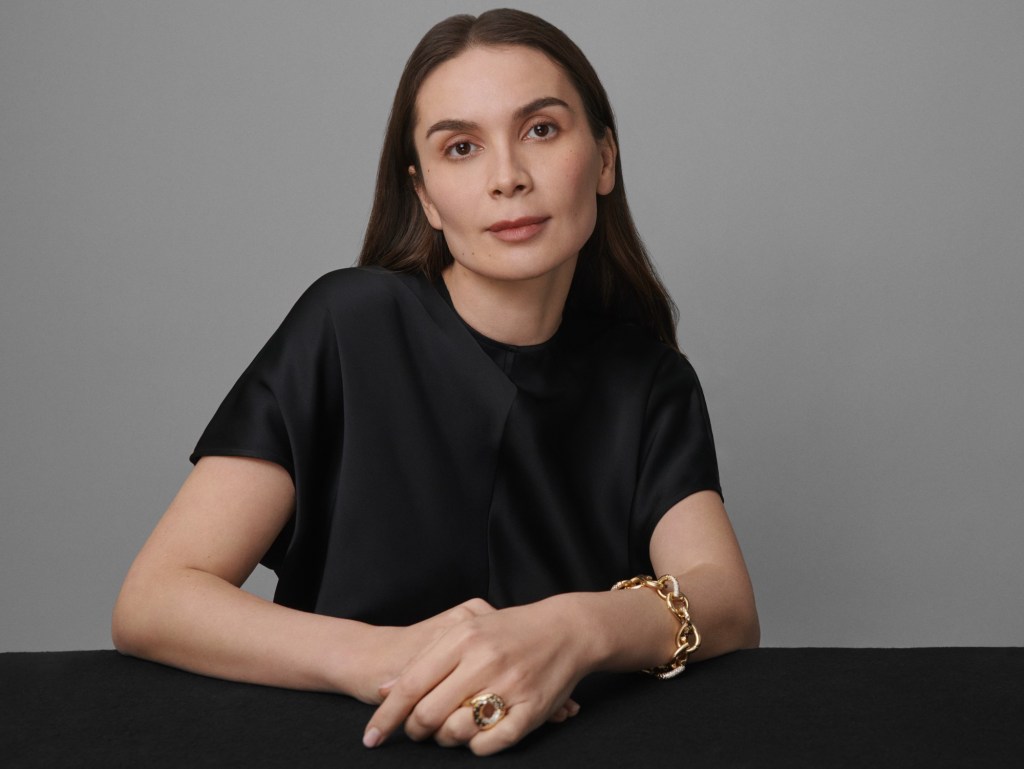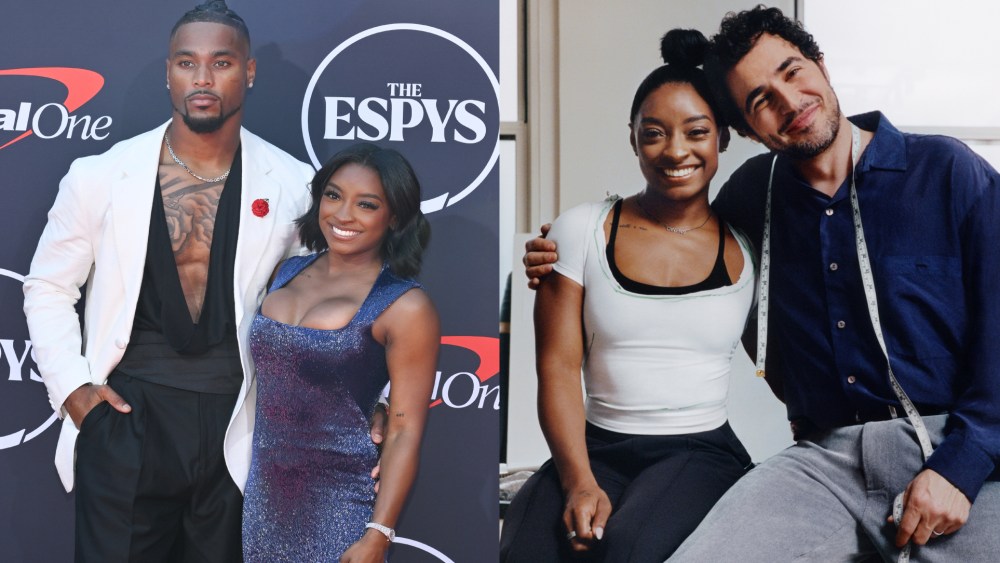Nigora Tokhtabayeva developed her love of jewelry from her grandmother in Uzbekistan, who believed in the spiritual and protective power of amulets and other jewelry.
It was one of the reasons the young Uzbek jewelry designer started her own sustainable jewelry brand, called Tabayer, in Miami where she grew up as a teen. Her modern knot hoops have been worn by Tracee Ellis Ross, Meghan Markle, Gwyneth Paltrow and many more celebs.
With sustainability in mind, Tokhtabayeva was selected to design a trophy for Fashion Trust U.S.’s second year of handing out awards to young designers at a Los Angeles ceremony on Tuesday night.
“We are immensely honored to collaborate with Tabayer on the trophy design for this year’s Fashion Trust U.S. awards,” said Tania Fares, founder of Fashion Trust U.S. “It’s crucial for us to align with creatives who not only share our vision but also embody our ethos of fostering and nurturing innovation in the fashion industry. We’re excited to unveil the [trophy] design and are confident it will mark a memorable highlight of this year’s ceremony.”
The Tabayer design team decided to create a handheld sculpture rather than a larger trophy like the one presented last year in a creation imagined by jewelry designer/sculptor Ana Khouri, who is based in New York but originally from Brazil.

Tokhtabayeva’s handheld version is modeled after the jewelry designer’s Oera motif, which employs a gold line that loops around like a needle and thread, as seen in Tabayer’s collection of rings, bracelets and necklaces. That design was “important to create a tension and balance within the sculpture to represent each designer’s journey to achieving impossible feats in their own way,” the jewelry designer explained.
Tokhtabayeva, who is on the FTUS advisory board, cast the trophy in bronze and finished it with 18-carat fair-mined gold, which was placed atop a concrete base. The trophy’s rivet details are an homage to the U.S. fashion industry’s history with long-standing clothing companies like Levi Strauss & Co., which began selling work wear blue jeans in the 1870s.
“We wanted to approach the design of this trophy as a sculpture,” Tokhtabayeva said. “Hopefully, it will be something that the award winners will want to proudly put in their homes as a piece of art.”
.


